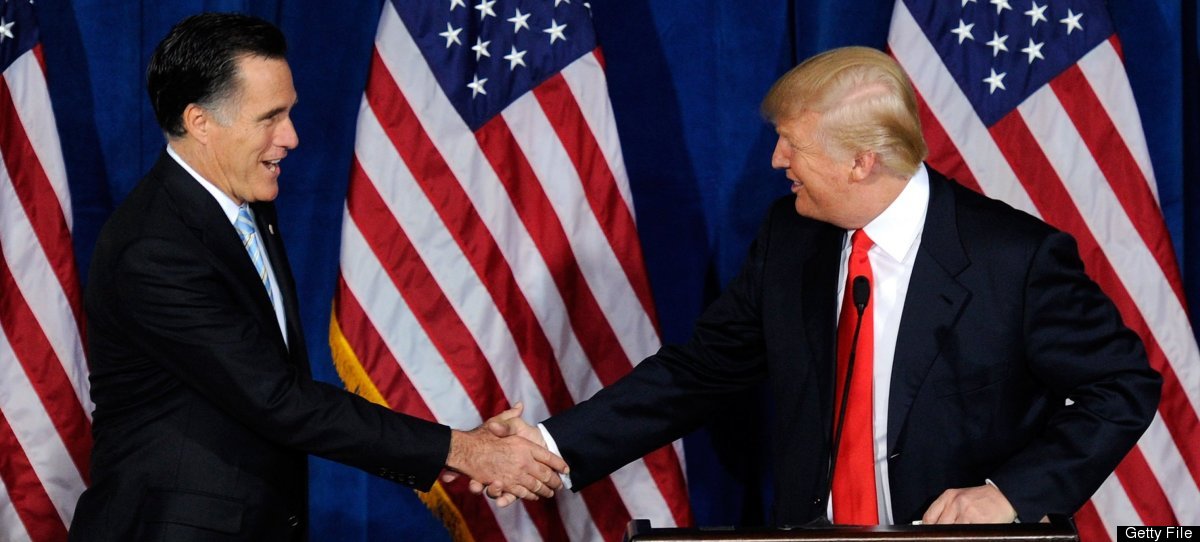WASHINGTON -- Mitt Romney again distanced himself from his infamous 47 percent comments caught on video at a private fundraiser in May, telling CNN in an interview Tuesday night that, "the words that came out were not what I meant."
This is the second time in as many weeks that the Republican nominee abandoned his position that the sentiment he expressed when he called 47 percent of the country government-dependent, self-identified victims was correct but poorly worded. Last week, he told Fox News' Sean Hannity that the comment was "completely wrong" as opposed to ineloquently stated.
Interviewed by CNN host Wolf Blitzer, Romney repeated the line that, as president, he would work for "100 percent of the people," adding that, "what was stated in the tape was not referring to what kind of president I'd be." Asked what he would say to those funders if he had the opportunity to address them again on the topic, Romney offered the following:
"Well, Wolf, as you know, I was talking about how do you get to 50.1 percent of the vote. I'd like to get 100 percent of the vote, but I figure that's not going to happen, so I was trying to tell contributors how I get to 50.1 percent. I think it's always a perilous course for a candidate to start talking about the mathematics of an election."
Romney's walk back from the 47 percent comments underscores a general walk toward a more moderate plank during the last week. In his initial comment, he clearly wasn't just talking about electoral math. He lamented that he would never be able to convince those people who paid no federal income taxes to take personal responsibility for themselves.
Elsewhere in the interview, the Republican nominee continued to present his tax plan as something that would be balanced in its budgeting and maintain the progressivity of the code. But while he pushed back forcefully on President Barack Obama's charge that he didn't have the means to pay for, what amounted to a $5 trillion tax cut, he continued to avoid offering specifics with respect to pay-fors.
"Well, I'm not going to lay out a piece of legislation here," he said, "because I intend to work together with Republicans and Democrats in Congress, but there are a number of ways one could approach this. One would be to have a total cap number. It could be $25,000, $50,000. And people could put whatever deduction in that total cap they'd like. Or, instead, you could take the posture that Bowles-Simpson did, which is going after specific deductions and limiting them in various ways. There are a number of ways we can accomplish the principles which I have: lowering rates for middle-income people, making sure high-income people don't pay a smaller share, and simplifying the code and then encouraging growth."
Original Article
Source: huffington post
Author: Sam Stein
This is the second time in as many weeks that the Republican nominee abandoned his position that the sentiment he expressed when he called 47 percent of the country government-dependent, self-identified victims was correct but poorly worded. Last week, he told Fox News' Sean Hannity that the comment was "completely wrong" as opposed to ineloquently stated.
Interviewed by CNN host Wolf Blitzer, Romney repeated the line that, as president, he would work for "100 percent of the people," adding that, "what was stated in the tape was not referring to what kind of president I'd be." Asked what he would say to those funders if he had the opportunity to address them again on the topic, Romney offered the following:
"Well, Wolf, as you know, I was talking about how do you get to 50.1 percent of the vote. I'd like to get 100 percent of the vote, but I figure that's not going to happen, so I was trying to tell contributors how I get to 50.1 percent. I think it's always a perilous course for a candidate to start talking about the mathematics of an election."
Romney's walk back from the 47 percent comments underscores a general walk toward a more moderate plank during the last week. In his initial comment, he clearly wasn't just talking about electoral math. He lamented that he would never be able to convince those people who paid no federal income taxes to take personal responsibility for themselves.
Elsewhere in the interview, the Republican nominee continued to present his tax plan as something that would be balanced in its budgeting and maintain the progressivity of the code. But while he pushed back forcefully on President Barack Obama's charge that he didn't have the means to pay for, what amounted to a $5 trillion tax cut, he continued to avoid offering specifics with respect to pay-fors.
"Well, I'm not going to lay out a piece of legislation here," he said, "because I intend to work together with Republicans and Democrats in Congress, but there are a number of ways one could approach this. One would be to have a total cap number. It could be $25,000, $50,000. And people could put whatever deduction in that total cap they'd like. Or, instead, you could take the posture that Bowles-Simpson did, which is going after specific deductions and limiting them in various ways. There are a number of ways we can accomplish the principles which I have: lowering rates for middle-income people, making sure high-income people don't pay a smaller share, and simplifying the code and then encouraging growth."
Original Article
Source: huffington post
Author: Sam Stein

No comments:
Post a Comment